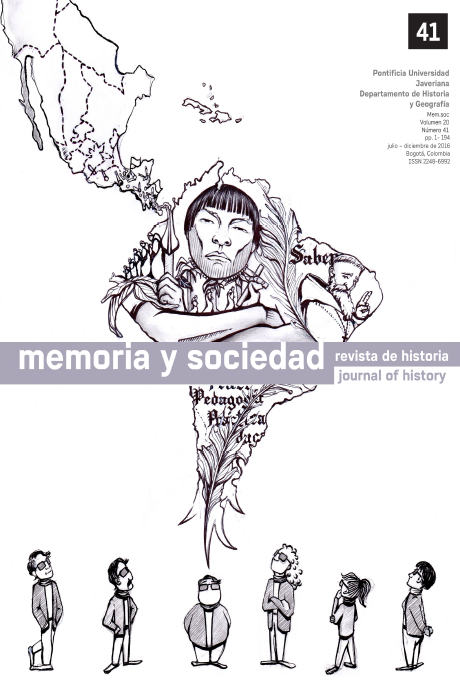Abstract
Drawing from an empirical study undertaken by the author at two National Museums in Mexico, this paper examines the interactions of the museums' visitors, as agents that use their capacity and resources to interact with one another as well as with the knowledges and narratives displayed at the museums. Grounded in contemporary debates in the social sciences, the analysis aims at elucidating the dynamics and the experience of power relations as social processes; it presents the different forms in which history and other knowledge, as well skills and abilities, interplay in such processes. The study reveals the social nature of the construction of historical knowledge and its usage —or lack thereof — in the teaching of history and in the formation of national and cultural identities in state institutions such as museums.
The journal Memoria y Sociedad is registered under a Creative Commons Attribution 4.0 International Public License. Thus, this work may be reproduced, distributed, and publicly shared in digital format, as long as the names of the authors and Pontificia Universidad Javeriana are acknowledged. Others are allowed to quote, adapt, transform, auto-archive, republish, and create based on this material, for any purpose (even commercial ones), provided the authorship is duly acknowledged, a link to the original work is provided, and it is specified if changes have been made. Pontificia Universidad Javeriana does not hold the rights of published works and the authors are solely responsible for the contents of their works; they keep the moral, intellectual, privacy, and publicity rights.
Approving the intervention of the work (review, copy-editing, translation, layout) and the following outreach, are granted through an use license and not through an assignment of rights. This means the journal and Pontificia Universidad Javeriana cannot be held responsible for any ethical malpractice by the authors. As a consequence of the protection granted by the use license, the journal is not required to publish recantations or modify information already published, unless the errata stems from the editorial management process. Publishing contents in this journal does not generate royalties for contributors.

